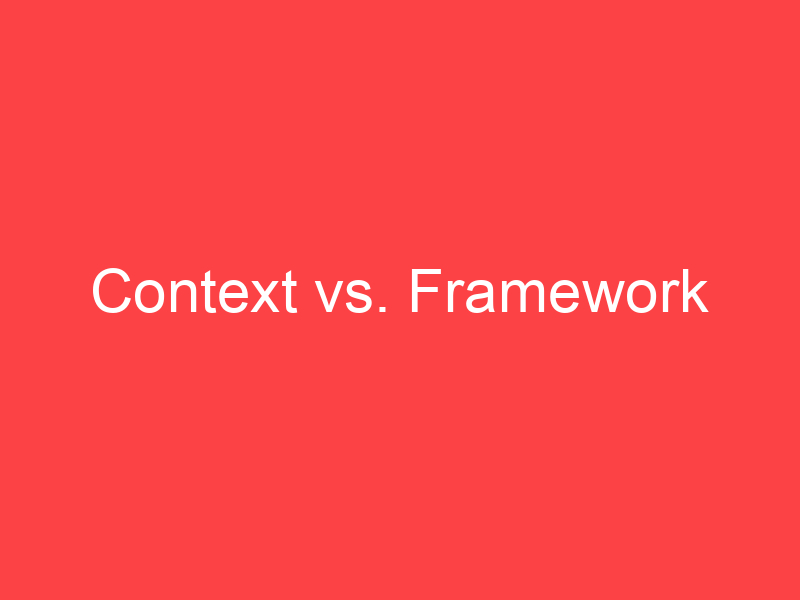-
Context (noun)
The surroundings, circumstances, environment, background or settings that determine, specify, or clarify the meaning of an event or other occurrence.
“In what context did your attack on him happen? – We had a pretty tense relationship at the time, and when he insulted me I snapped.”
-
Context (noun)
The text in which a word or passage appears and which helps ascertain its meaning.
-
Context (noun)
The surroundings and environment in which an artifact is found and which may provide important clues about the artifact’s function and/or cultural meaning.
-
Context (noun)
The trama or flesh of a mushroom.
-
Context (noun)
For a formula: a finite set of variables, which set contains all the free variables in the given formula.
-
Context (verb)
To knit or bind together; to unite closely.
-
Context (adjective)
Knit or woven together; close; firm.
-
Framework (noun)
A support structure comprising joined parts or conglomerated particles and intervening open spaces of similar or larger size.
-
Framework (noun)
The arrangement of support beams that represent a building’s general shape and size.
-
Framework (noun)
The larger branches of a tree that determine its shape.
-
Framework (noun)
A basic conceptual structure.
“These ‘three principles of connexion’ compose the framework of principles in Hume’s account of the association of ideas.”
-
Framework (noun)
A reusable piece of code (and, sometimes, other utilities) providing a standard environment within which an application can be implemented.
-
Framework (noun)
The identification and categorisation of processes or steps that constitute a complex task or mindset in order to render explicit the tacit and implicit.
-
Framework (noun)
an essential supporting structure of a building, vehicle, or object
“a conservatory in a delicate framework of iron”
-
Framework (noun)
a basic structure underlying a system, concept, or text
“the theoretical framework of political sociology”

